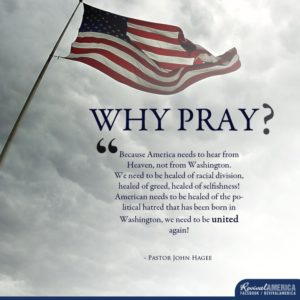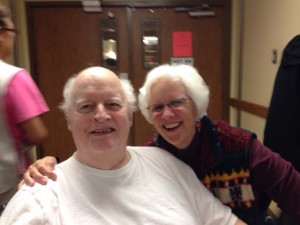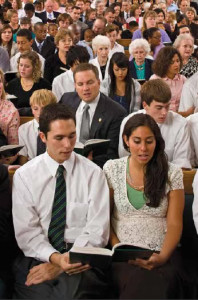At the founding of our nation, with a population of roughly three million people, we had seven world-class leaders. Today, with a population one hundred times that number, how many truly world-class leaders have you seen lining the stages of Republican and Democratic debates? ~Hank Hanegraaff, founder of Christian Research Institute
It’s hard to be optimistic about our nation’s future. When I talk to friends about who they might vote for in the next Presidential election, they often say, “I don’t know. If it is Hillary Clinton and Donald Trump, I don’t want to vote for either one of them.” I feel the same way. For this post let’s assume they become our nominees. As Christians, do we have an ethical obligation to vote, even if we believe both candidates have moral failures in their history? Here are three reasons I believe the answer is, “yes.”
1) We are citizens of the United States of America
We are not here by accident. By God’s grace, we have the privilege of living in one of the best countries on this earth for this window of time.
From one man He made every nation of men that they should inhabit the whole earth; and He determined the times set for them and the exact places where they should live. (Acts 17:26)
Accordingly, we have to take responsibility for who we elect to public office. It is a part of our “job description” to vote. We are a democratic republic. This means that citizens give ultimate authority and power to the elected officials who run our government. We can’t afford to take our authority lightly. When we vote, we are delegating duties to the public servants we believe will work in our best interest.
2) We Need to Direct our Votes to Someone of Strong Character
Character matters. The quality of government in any country depends more upon on the quality and characteristic of leaders than laws. We have Scriptural support for this:
When the righteous rule, the people rejoice; when the wicked rule, the people groan. (Prov 29:2)
Better a poor man whose walk is blameless than a rich man whose ways are perverse. (Prov 28:6)
For out of the overflow of the heart the mouth speaks. The good man brings good things out of the good stored up in him, and the evil man brings evil things out of the evil stored up in him. (Matt 12:34-35)
Whoever can be trusted with very little can also be trusted with much, and whoever is dishonest with very little will also be dishonest with much. (Luke 16:10)
Regardless of our opinions of the two likely nominees, we need to vote for the person we feel shows the strongest character. I realize that may be relative!
3) I don’t believe we are endorsing “moral evil” with either candidate
If Christians face two clearly immoral nominees, then we shouldn’t vote for either one. We can’t rationalize a vote for immorality simply because it’s the “lesser of two evils.” If both candidates are morally evil, then Christians should consider who they would write in on their ballot as a third choice! We still need to vote.
There is a difference between having moral failures and being morally evil. All have had moral failures. If candidates can only run for office if they’ve had no moral failures, we wouldn’t have anyone to vote for! I don’t perceive that either candidate is out to commit evil. They both see messes, and both have different approaches on how to fix them. I believe both are exceptionally intelligent and highly skilled at what they do. I believe both of them have something to offer us that we need.
Given these three reasons, I believe we must vote. The Lord requires that we are good stewards of the authority He gives us. Unless Jesus is one of the candidates on the ballot, we will never have a morally perfect candidate to elect.
All have sinned and fallen short of the glory of God.” (Rom 3:23)
This means we will always be choosing “the lesser of two evils.”
Continual prayer has to be our foundation before we vote. If we are faithful to pray fervently, I believe He will lead us to the right decision. We can trust that whomever we are leaning toward when it’s time to vote, it will be His prodding because we’ve undergirded it with prayer.
Once we elect our President, we can trust one more Scriptural truth that can give us all peace that He’s still in control.
The lot is cast into the lap, but its every decision is from the Lord. (Prov 16:33)
We will do our part as citizens to vote. We may not like the outcome, but the Lord calls us to respect the office. We have to trust that God will work through whomever HE CHOOSES in the end! I hope we will spend more time praying for our new President, rather than complaining about him or her. They will need all the help they can get.
What do you think? Will you vote? Are there some biblical truths I missed that should lead us NOT to vote?
I think many are struggling with the two nominees that are likely to be on the ballot. Whether you agree with my thought processes or not, I would love to hear your thoughts on this subject below. There is a Comment Box awaiting your reply!
Blessings,
Lee Ann









